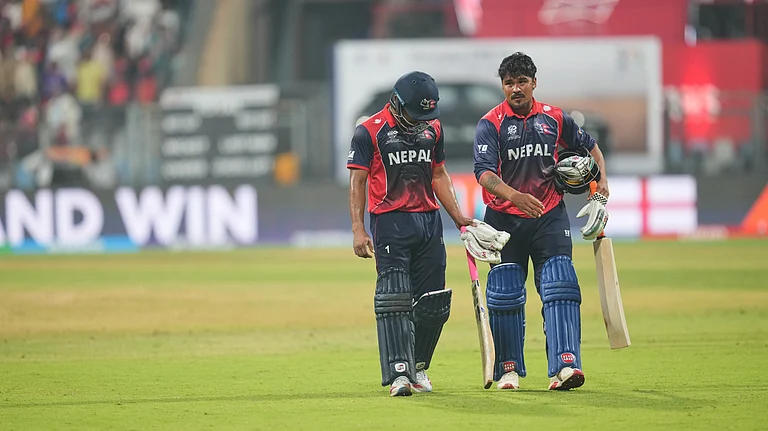Heavily-Worn Pride

Last month, China and India engaged in a bitter war of words that began with Beijing taking unusual exception in public to Manmohan Singh’s impending visit to Arunachal Pradesh. High-decibel Indian TV reportage repeatedly dwelt on the various acts of purported perfidy and intimidation that Beijing had engaged in over the last few months. More dramatically, October 20, 1962—when China ‘taught India a humiliating lesson’—was recalled in an emotive manner. On the other side, the Chinese media wrote disparaging editorials about Indian hegemony.
It was against this backdrop that I arrived in Shanghai on October 21 to participate in an international conference on ‘China-India Relations: Between Cooperation and Competition’ at the invitation of the Institute of International Studies, Fudan University. The direct flight from Delhi to Shanghai was over five hours and the contrast between the two airports was striking.
The Maglev (magnetic levitation) train, unique to Shanghai, was inaugurated in January 2004 and I got my first glimpse as it zoomed overhead while we drove from the Pudong airport to the local Fudan University. Our Chinese host told us with legitimate pride that this train, which cost US $1.4 billion, was the only one of its kind in the world. Built with German technology over three years, the Maglev does a 30-km stretch from the airport to a subway station in the city in under 8 minutes and cruises briefly at 430 kmph before slowing down. The Maglev is symbolic of much of modern Shanghai.
Groves Of Academia
Fudan, which began as a college in 1905, now ranks among the top three Chinese universities and has almost 45,000 students and a faculty of 2,300 professors. The sprawling Handan campus is an endearing mix of the old and the new and the Crowne Plaza Hotel we stayed in is part of the dynamic private-public partnership that animates many aspects of current Chinese endeavour. The sturdy bicycle is the preferred mode of transport for the students and every street corner has the familiar cycle mechanic—cigarette and spanner held with equal ease.
Do Chinese scholars and the media have any freedom of expression—or are they all controlled by the Communist Party that has the blood of Tiananmen on its hands? The dominant perception in India is of a monolith manipulated by the Party. However, as the conference deliberations revealed—this is not really the case in academia. Professor Zhang Guihong, the executive director of the Centre for South Asian Studies at Fudan, had brought together the cream of China’s many India experts and the two-day deliberations were spirited. Some of the elders, whose experiences go back to the 1950s, stayed with the official view—that it was Nehru’s imprudent policies that led to the 1962 war and cast India as the ‘villain’. However, others were more nuanced and cautiously spoke about there being no black and white positions on either side and iterated the need for a mutually acceptable give and take to resolve the very complex border dispute that has festered for decades.
Understanding Disagreement
The diversity of views was best reflected by Professor Shen Dingli—a familiar name on the conference circuit—who, in the course of a sober presentation, deified the many virtues of true Communism and bemoaned the fact that China was drifting away from some of the core postulates. Reiterating that he was speaking in a personal capacity—he noted that the problem of Chinese citizens in exile in India (the Dalai Lama?) is China’s internal problem. Though it is regrettable that this has occurred, China still “owes gratitude” to the host country, in this case India, for having provided them shelter. But it never should extend beyond the boundary of giving shelter, for instance, in allowing them to stage anti-China political protests. And against that backdrop, India has done properly. As I sat up startled, he further added: “The NPT is a garbage word, for it violates the five principles of equality”. The discussions that followed were energetic, with a younger Chinese participant adding that Prof Shen was speaking like an Indian!
Did the conference solve the border dispute or the fracas over Arunachal? Not at all. But it proved the tenet that India and China need many tracks of communication and much greater awareness about each other to redress the many misperceptions. And, for that reason, it was reassuring to return to Delhi amidst reports of a positive meeting between Manmohan Singh and his Chinese counterpart at the asean summit in Thailand.
Girl With A Dragon Phobia
When I got home and spoke about how fruitful and educative the Shanghai trip had been for me, our irreverent daughter, who is an ardent ‘Save Tibet’ advocate, asked me pointedly if I had now become a panda-hugger. Not quite—but a more empathetic dragon-watcher maybe?






















